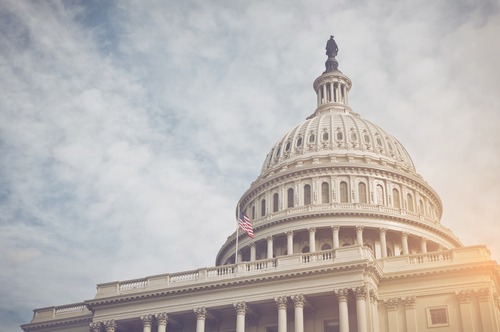
A pair of bills introduced by U.S. Rep. Anna Eshoo (D-CA) and U.S. Sen. Edward Markey (D-MA) this week would authorize the federal government to investigate the health impacts of nuclear weapons and promote safe design and mass-production of genetic material through artificial gene synthesis.
“New technologies present challenges to our health, well-being, and national security, and the U.S. government must have a full understanding of the range of risks we face,” Eshoo said. “Deadly viruses can now be made from scratch, using artificial gene synthesis, and nuclear weapons can cause severe health impacts beyond the immediate devastation. I’m proud to be working with Senator Markey to introduce two health security bills, the Health Impacts of Nuclear War Act and the Securing Gene Synthesis Act, that will protect our country from these threats by requiring screening protocols for gene synthesis products and better prepare for the after-effects of nuclear detonation.”
Under the Health Impacts of Nuclear War Act (H.R.4703), the U.S. Department of Health and Human Services (DHHS) would be required to evaluate the country’s preparedness for, lead an interdepartmental investigation into, and guarantee resources are available for the impacts of nuclear war.
“Most are aware of the immediate devastation that would result from a nuclear attack, but the reverberating environmental repercussions, and their effects on human health, are often overlooked,” Dr. Landon Klein, Director of US Policy at the Future of Life Institute, said. The institute has backed the bill alongside the Alliance to Feed the Earth in Disasters (ALLFED), and the Global Catastrophic Risk Institute. “Environmental disruption from nuclear blasts and associated human health effects have the potential to dramatically amplify the already-horrific consequences of nuclear war. This bill is an important step in understanding and preparing for those consequences so we can mitigate these harms in the unfortunate event we fail to avert a nuclear crisis.”
In the modern world, though, plenty of other risks exist beyond the terrors of nuclear war, and one of those is the worry that mass-produced genetic material could be used by malicious actors to create a new pandemic. The Securing Gene Synthesis Act seeks to counter this potential by directing DHHS to analyze the unknowns, risks, costs and benefits of different regulations of gene synthesis products and to require that providers enact screening protocols, to prevent misuse and shield the public from dangerous synthetic DNA. Any federal agency or entity using federal funds for these products would only be allowed to purchase them from suppliers deemed compliant with screening regulations.
The Securing Gene Synthesis Act is backed by the Johns Hopkins Center for Health Security, the Nuclear Threat Initiative, the Federation of American Scientists, and the Institute for Progress.
“Genetic synthesis, despite its many promising benefits, could become dangerous if left unregulated,” Markey said. “The fact is that we are not prepared, but we can be. I am proud to work with Representative Eshoo to advance two health security bills that will protect the wellbeing of every American against the threats of nuclear war and rapidly emerging gene synthesis technology.”




